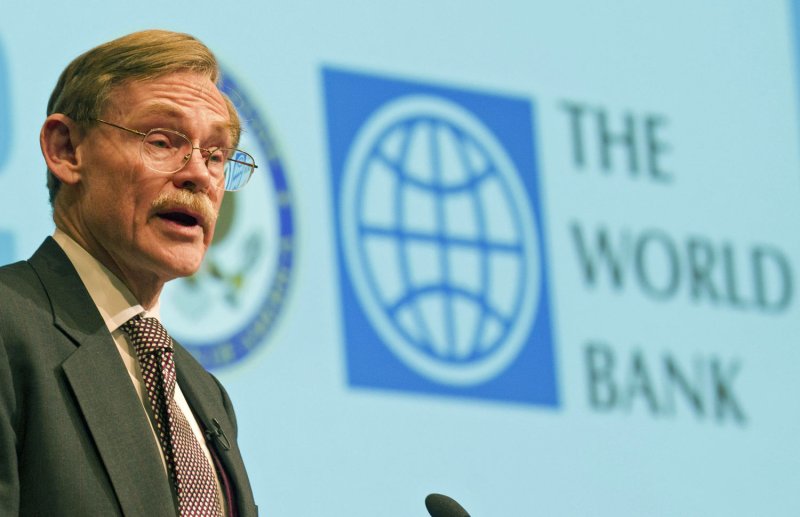Robert Zoellick, president of the World Bank Group, speaks at a discussion titled "Spurring Global Economic Growth: Unlocking Capital for Women Entrepreneurs," at the World Bank in Washington, D.C. on December 14, 2011. UPI/Kevin Dietsch |
License Photo
BRASILIA, Brazil, Feb. 16 (UPI) -- Brazil sent the strongest signals yet it wants the World Bank's top job going to the citizen of a country other than the United States.
In the latest twist to the campaign to have top jobs at the International Monetary Fund, World Bank and the United Nations distributed among nationals of countries outside North America or Europe, Brazil informed the World Bank it wanted an end to the current practice of a European heading the IMF and a U.S. citizen taking the bank's presidency.
The practice has been followed in appointments to the top jobs at the two financial institutions since 1945.
"There is no reason that the president of the World Bank is a specific nationality. It should just be someone competent and capable," Brazilian Finance Minister Guido Mantega said, Brazilian media reported.
"Our goal is that emerging countries have the same chance to compete to lead these multilateral organizations."
"I believe that the United States will continue to insist that it will be one of its representatives," he said. "We are working so that that does not happen."
U.S. President Barack Obama's administration has announced it plans to nominate a successor to World Bank President Robert Zoellick, who said he would step down at the end of his five-year term in late June.
Brazil has been at the forefront of a protracted diplomatic campaign to promote nationals of emerging market economies as heads of major international institutions, including the United Nations. At the United Nations, Brazil is campaigning for a permanent Security Council seat representing Latin America.
Christine Lagarde's appointment at the IMF last year was preceded by a vigorous campaign to uproot the practice in favor of a candidate from the emerging markets, including BRICS -- Brazil, Russia, India, China and South Africa.
The former French finance minister took over despite BRICS objections after the resignation of Frenchman Dominique Strauss-Kahn.
Brazil, India and South Africa -- BRICS members that don't have permanent Security Council seats -- have campaigned against the standing arrangement. The diplomatic lobbying gained more momentum after the 2008 financial crisis. Critics even cited the U.S. debt to argue against the IMF and World Bank continuing to have their headquarters in Washington.
The World Bank employs about 10,000 people. Until the eurozone crisis began was, the World Bank was funding mostly developing and poor countries. The bank's $26.7 billion disbursements last year are increasingly matched by independent and bilateral deals led by cash surplus countries like China.
Brazil committed several billion dollars in aid to Cuba this year and has indicated it plans to project its diplomatic and financial leadership in the Latin American and Caribbean region.





